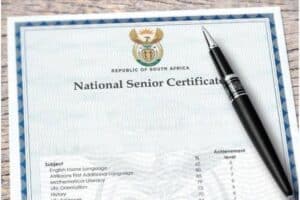There is no moral equivalence between apartheid’s use of race categories and their continued use by the democratic government.

The ideological position of the Democratic Alliance, South Africa’s main opposition party, on how to achieve racial justice and equality in post-apartheid South Africa is morally confused.
John Steenhuisen, its new interim national leader, says that the party does not believe in the use of race categories to address racialised inequality. As far as he is concerned, affirmative action and black economic empowerment policies indicate that post-apartheid South Africa is “obsessed with race”.
He is convinced that to bring about transformation in post-apartheid South Africa,
we don’t need to resort to crude racial classification.
But in my view it is morally and intellectually dishonest to disavow a race discourse as identity politics gone awry in a country that is divided along racial lines, socially and economically.
White South Africans make up 7.8% of the country’s population. But they own more than 90% of the country’s wealth. And a government land audit in 2017 showed that white people own 72% of the land, followed by coloureds at 15%, Indians at 5% and Africans at 4%. (The racial delineations used here were adopted under apartheid, which distinguished between various race groups. Broadly, Indians referred to South Africans descended from people who came to the country from the Indian subcontinent, many as indentured labour, while coloureds referred to people of mixed race.)
And according to Stats SA, in addition to having worse employment outcomes, Africans also earn the lowest wages.
To imply, as the Democratic Alliance does, that there is a moral equivalence between apartheid’s use of race categories and their continued use by the democratic government is a deliberate distortion of reality.
Race categories
The apartheid regime used race categories as part of a white supremacist project. This was underpinned by a racist eugenics vision of creating a racist white utopia in southern Africa, through racial segregation. The government introduced a range of laws to advantage white people and disadvantage black people. One of the most pernicious was the Group Areas Act. This segregated social groups by race, making it a crime for social groups to interact.
The logic of the continued use of the race categories post-apartheid has been to achieve the liberal objective of correcting historically unjust racial inequalities. It is a truism to point out that race-conscious policies would be unnecessary if post-apartheid South Africa were a racially just and equitable society. But it is not.
False claims to a liberal tradition
The Democratic Alliance claims the liberal tradition as its brand of politics.
But true liberals know that liberal democracy cannot function successfully in a society without social justice. John Rawls, the esteemed American social justice philosopher-warrior, advocated for the principle of redress in the face of undeserved social inequalities.
A liberal theory of justice disavows a society that rewards people for privilege, or for being born in a certain social class. Honest modern-day interlocutors, such as George Fredrickson, an American historian of race, argue that black people in power in post-apartheid South Africa cannot
adequately compensate blacks for three and a half centuries of expropriation, exploitation, and deprivation to the extent that would be required to make them truly equal to the whites.
The Democratic Alliance is of the view that to effectively address the legacy of apartheid, race has to be removed in redress as a proxy. It brands this a form of liberalism.
But it is quite the converse, and simply a denial of the current realities of South Africa. It was partly this realisation that led Mmusi Maimane, the Democratic Alliance’s former party leader, to resign from his leadership position. According to Maimane, the party
is not the vehicle best suited for achieving racial justice and equality.
In his resignation speech, Maimane effectively conceded that the party’s brand of politics is white liberalism – a prominent strand within the liberal tradition.
Hypocrisy
In post-apartheid South Africa, the spectrum of white liberalism ranges from white political organisations like the Democratic Alliance to AfriForum and Solidariteit. The latter is historically a white trade union, while AfriForum portrays itself as a “civil society” organisation.
AfriForum’s campaign to end farm murders can be traced back to apartheid racist propaganda of “Swart Gevaar” – a racist narrative that characterises black people as criminals and a danger to whites and their interests.
In my view, white liberals in South Africa are in denial, and hence refuse to accept a liberal truism that whites do not deserve the privileged position resulting from centuries of black exploitation and oppression. Pointing that out is not synonymous with victimising whites. Rather, it is a first step towards a just society built on liberal values of fairness and equality.
Mandisi Majavu, Lecturer in Sociology, Nelson Mandela University
This article is republished from The Conversation under a Creative Commons licence. Read the original article.
For more news your way, download The Citizen’s app for iOS and Android.






